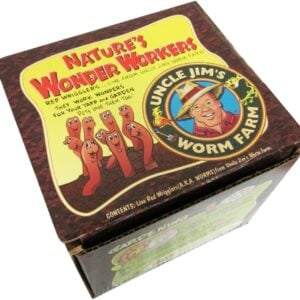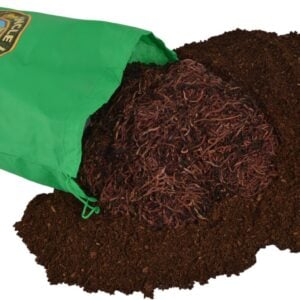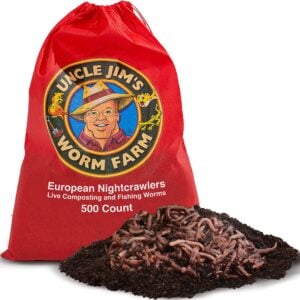Vermicomposting Supplies
Blog Category

Top Selling Products
Vermicomposting
Composting is a great way to turn organic waste into valuable fertilizer for your garden. Just save kitchen scraps, such as carrot peelings and cabbage cores, and put them in a composting bin. Composting is usually done outdoors, but if you compost with worms, you can compost outdoors or indoors. If you want to start […]
Did you know that you can actually compost your dog waste and cat litter? It’s not difficult, but you have to use a special composter that extends below the surface of the soil. You can make a pet waste composter yourself or buy a Pet Poo Worm Farm. Whether you make your own pet waste […]
Most gardeners use one of two kinds of composting: cold composting or vermicomposting. But there’s no reason you can’t combine the two. What we call “hybrid composting” can increase the amount of compost you produce and speed up the process, too. Types of composting Vermicomposting uses worms to break down plant matter and food scraps […]
Fruit flies are annoying little bugs that like to invade the house. The Drosophila melanogaster is attracted to organic matter like fruits and vegetables. Fresh fruit on the counter or in a bowl can attract them. How do they get in the house? Are they preventable? Are there natural methods to get rid of them? For […]
To have the best vermicomposting experience, your worms need the best bedding. Our Red Worms are the best for composting. They will savor your leftovers and produce the best organic fertilizer. The good news is that there are multiple different beddings to choose from for your worms. Uncle Jim has pre-made bedding that you can buy. You can also […]
Worm Composting – The Basics What is vermicomposting? “Vermi-” means “relating to worms.” Therefore, vermicomposting means creating compost by using worms. It’s the art of feeding worms your food scraps. The worms turn your food waste into nutrient-rich organic fertilizer, also known as humus, worm castings, worm manure, or worm feces – perfect for gardens, […]
All living organisms go through the same life cycle: birth, development, reproduction, and death. What is the life cycle of the King of Composting, the Red Worm? These worms are hermaphrodites. That means they each have both male and female reproductive organs. Let’s find out how they make new, baby worms! Red Worm Reproduction Red […]
Safe Peat Moss for Vermicomposting Bedding
Peat moss makes excellent bedding for a vermicomposting bin, but how can you tell if a bag of peat moss is safe for your composting worms? Many people new to vermicomposting ask whether they should add peat moss that contains additional ingredients. The bag might say it “feeds” with a chemical fertilizer, such as Miracle-Gro. […]
Composting is composting, right? Wrong! Let’s talk about three different types of composting: hot, cold, and vermicomposting. All these styles of composting break down organic matter. They all result in finished compost to use in your garden soil. However, they each require a different amount of labor from you. And they each take a different […]
Kids love being outside, and they love being a part of the grown-up world. Composting and gardening let them do both. Gardening is educational, too. Kids can learn new things, and so can you. Even seasoned adult gardeners are always learning! Plant the Seeds



